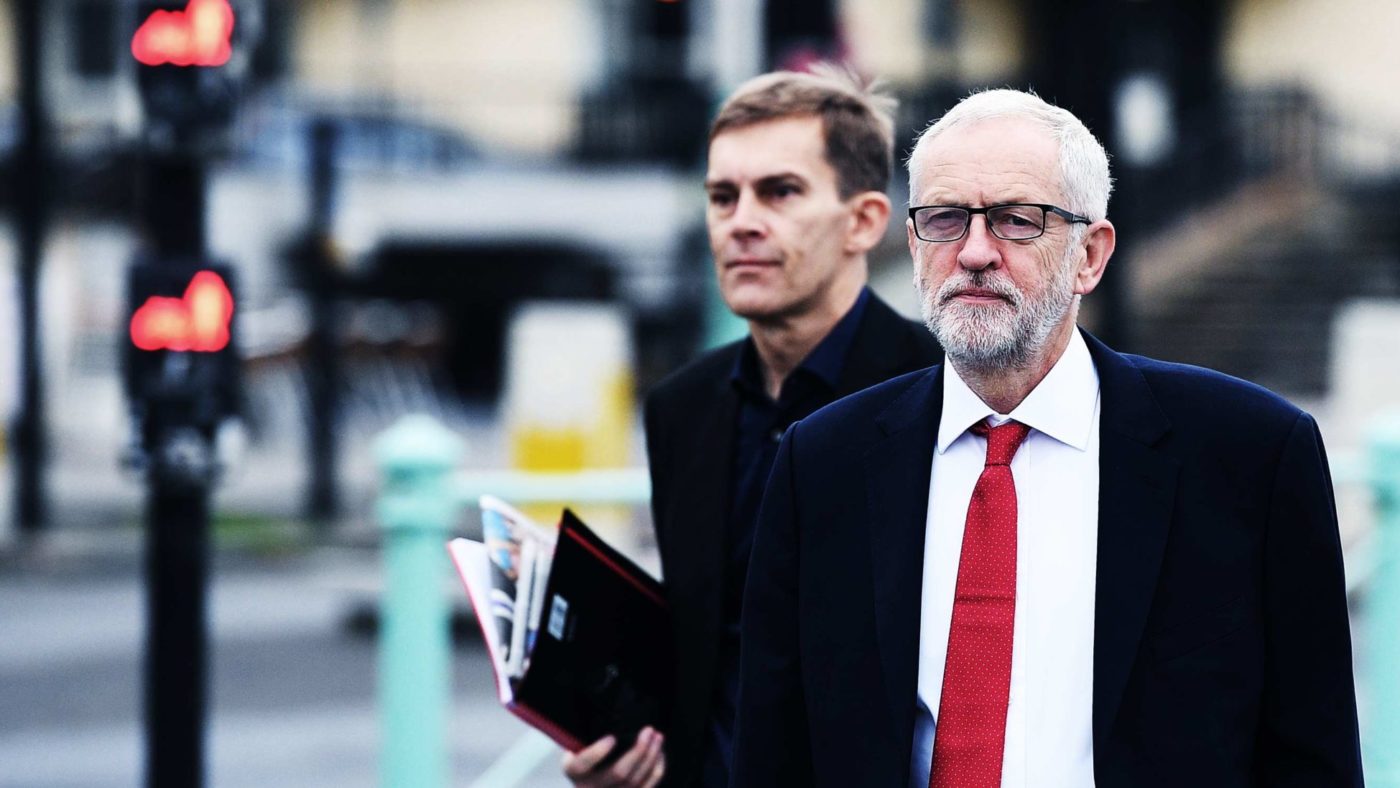It is Friday April 13 2018 and Diane Abbott is on the Today programme. In a combative appearance with Nick Robinson her refusal to say whether Labour would ever approve UK military action overseas is what creates headlines. What gets overlooked is that she also says this: “What we believe beyond reasonable doubt is its [Russia’s] role in the poison gas attacks in Salisbury.”
This is just a month after the Salisbury attack. Abbott was definitive because she had seen the same “unprecedented levels of intelligence” that led 28 countries to evict Russian diplomats. Those expulsions by so many countries, even Hungary, had spooks back-slapping with satisfaction, according to the writer and security specialist Edward Lucas.
Yet two days after Abbott’s Today Show appearance, Jeremy Corbyn told the media that “if we are going to make a very, very clear assertion like that we have got to have the absolute evidence to do it”.
Six months later and Corbyn was still hedging his bets. How? His theory was that either Russia or someone else could be responsible, emphasis on the latter. Maybe they lost the poison somehow? That theory was why he wanted the UK to send a sample to Moscow. In Parliament that September, responding to Theresa May laying out what was a massive humiliation for the Russian government, that ‘Kremlin source’ theory was still there in his speech.
Throughout last summer Corbynite social media was awash with Salisbury conspiracy theories as they defended the great leader. You know who else in Summer 2018 was still questioning whether Russia was responsible for the attack in Salisbury? Donald Trump.
‘Corbyn destroyed by media smears’ the same people say, based on their belief that what was being reported in the ‘MSM’ were lies. Yet neither the ‘MSM’ nor the ‘deep state’ nor the Tory election machine ever really nailed quite how awful Corbyn was over Salisbury.
Edward Lucas says that when he gave evidence for the withheld Commons Committee Russia report he pointed out that after the initial expulsions of diplomats the UK had not countered the massive disinformation campaign well. Yet the role that the Leader of the Opposition played doesn’t figure. For some reason Corbyn’s role is not one that Lucas’ colleagues have picked up on either.
Nevertheless the voters didn’t need to know the reason why Corbyn was suggesting sending samples to Moscow, they just saw him saying stuff like that and formed their overwhelmingly negative opinions.
It wasn’t just on Salisbury that Labour got off lightly. A culture (which I took part in) of often gleefully panning for gold in Corbyn’s past meant that the present, what Labour were actually doing now, largely disappeared. Their apparent policy of not supporting the Syrian Civil Defence, the White Helmets, for example, was almost totally ignored. The ghastly Chris Williamson was not banished for supporting Assad’s fascist state, but, eventually for one incidence of anti-Semitism too many. The Labour take-up of the Integrity Initiative Russian disinfo Op became instead about Spanish antisemite Pedro Baños.
There are two other (never asked) policy questions which illustrate how, for all the claims of media bias, Labour’s foreign policy was not properly scrutinised:
- Did Labour support the UK training Ukrainian troops?
- Did Labour support EU sanctions on the Nicaraguan dictatorship?
The answer to both questions is, of course, no. Clearly no from the evidence of the past two years since Corbyn paid a visit to Chatham House in the last election and said that “the ‘bomb first, talk later’ approach to security has failed”. Nine months after that speech Emily Thornberry published a piece on the Middle East, that Corbyn plugged, which managed to not mention Assad. She proposed that the Syrian dictator stay in power and for UK taxpayers to pay for reconstruction. She attacked the White Helmets.
One of the things which I don’t think folks understand is that a very big reason the Corbynites are clinging on to the leadership for the time being is to defend their ‘anti-imperialist’ foreign policy agenda. Foreign policy looms large for the fans of the Stop Some Wars Coalition.
One of the most profound meanings of realignment internationally by Corbynism was likely exit entirely from the Socialist International and instead going with the sorts of left Latin American forces who themselves have failed to deal with chavismo and Cuban communism. Evo Morales welcomed as a hero to Downing Street?
Given the sheer number of outlandish and immoral positions the Corbyn team took on foreign policy, they really did get off lightly. If Labour are to move forwards as a potential party of government, their next leader needs to ditch the ‘anti-imperialist’ schtick and rediscover the party’s true internationalist heritage.
Click here to subscribe to our daily briefing – the best pieces from CapX and across the web.
CapX depends on the generosity of its readers. If you value what we do, please consider making a donation.


